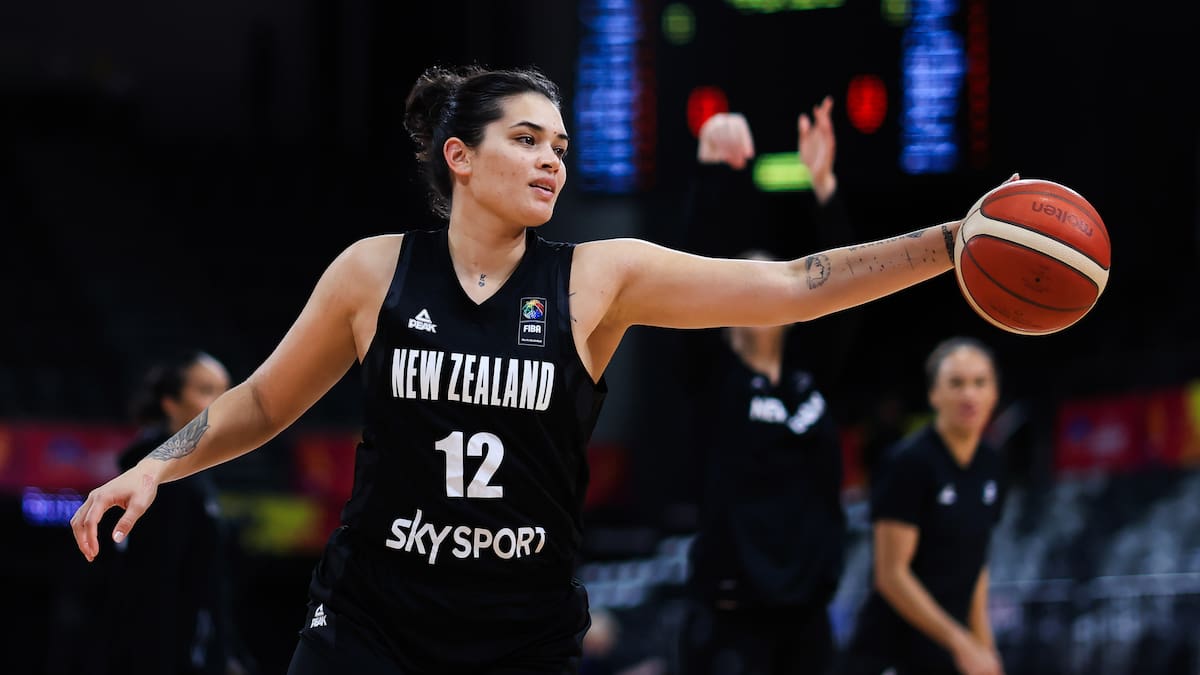Penina Davidson: “I don’t want to be just known as someone who plays basketball.” Photo / Photosport
Opinion
The week of their semifinal, an interview dropped with the Northern Kāhu captain, Penina Davidson. Rather than the usual fluff of growing up, discovering oneself through your chosen sport and lyricism about what it means to wear the crest, this was something different. This was a sport fully embracing its
place in politics. An athlete choosing to take a stand and a franchise taking its place right behind her.
For Davidson, wearing Māori designs on her uniform, playing in both a team and a league with a Māori name, she feels it’s her responsibility to “show up for Māori”. She used her interview to urge those who “feel as passionate” as she does to make a submission in opposition to Act’s divisive Treaty Principles Bill.
Anticipating all the usual talking points, Davidson planted her feet ready to receive the charge. “Sport and politics not mixing is really funny to say to a woman, a Pacific woman, who is playing basketball on these lands,” starts Davidson in the Kāhu social media clip, “Personally, I don’t want to be just known as someone who plays basketball, as someone who shoots lay-ups, when something like this is happening in the background”.
This is a sentiment no doubt shared by many athletes at this point in time. It’s why we have seen challenges to the Government’s agenda, laid down in haka in both the Super Rugby Aupiki and the final All Blacks test this year. It’s why several current athletes were there, amongst the tens of thousands of marchers, as the hīkoi wound its way to Parliament.
One netballer among them carried a sign that read “Sport is teetz without us”, but for a long time, athlete’s voices have been mostly absent in such political conversation. It’s not that they haven’t raised them, it’s because there is vested corporate interest in what narratives we amplify. Sports therefore have favoured conservatism or engagement only in a pre-approved list of issues. You can talk about mental health as an athlete, but not about the difficulty in accessing support services.






